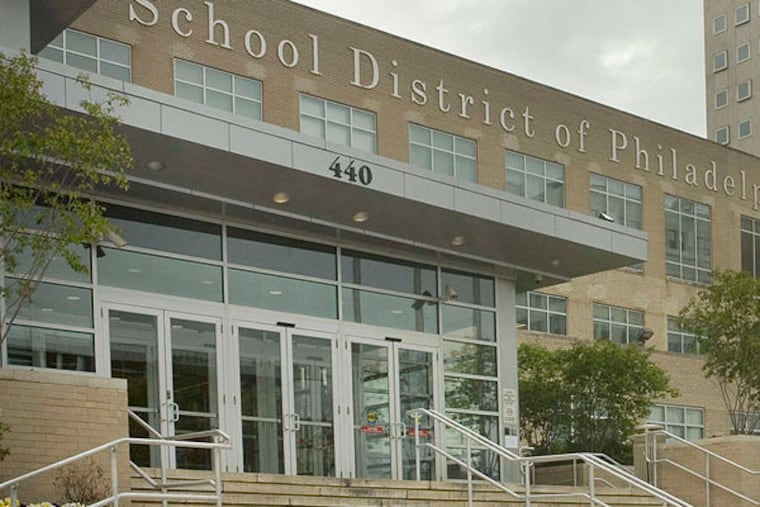Schools, not crime, the No. 1 issue, Phila. tells Pew
Education is the most important issue to Philadelphians - more important than crime, jobs, and the economy, according to a new study by the Pew Charitable Trusts.

Education is the most important issue to Philadelphians - more important than crime, jobs, and the economy, according to a new study by the Pew Charitable Trusts.
City residents favor eliminating the School Reform Commission, want an elected school board, and "have an extremely low opinion of the performance of the public school system," according to a research study released Monday.
Philadelphians were mixed on charter schools in the poll - they view them generally positively, but most back the idea of spending more money on traditional public schools rather than creating new charter schools.
Thirty-two percent of city residents view education as the top issue, according to Pew, with 23 percent viewing crime as paramount and 22 percent jobs and the economy.
That education topped the list of people's concerns "is striking," said Larry Eichel, director of Pew's Philadelphia research initiative, especially in a city where unemployment has been high and job growth relatively flat.
Those who mentioned education as the most important issue tended to be college graduates, parents of public school students, and people with household incomes between $50,000 and $100,000.
Residents of Northeast Philadelphia and Hispanics, however, said public safety issues were at least as important as education.
Pew polled 1,603 residents 18 and older citywide.
Philadelphians are down on the SRC, the Philadelphia School District's governing body since 2001. Forty-eight percent said they wanted the body eliminated while 41 percent expressed no opinion and just 11 percent said the SRC should be kept. (Residents will weigh in on the future of the SRC in a nonbinding referendum to appear on city ballots in May.)
If the SRC were to end, residents said they favored an elected school board (64 percent) over an appointed board (11 percent). Before the SRC, Philadelphia had a school board whose members were appointed by the mayor.
Philadelphians' views of the public school system have worsened over time, with 77 percent calling the public school system fair or poor in 2015, compared with 63 percent in 2009.
Thirty percent of city residents said schools were good or excellent in 2009; just 19 percent gave the system those high ratings this year.
Most Philadelphians - 58 percent - said they believed charter schools improve education options and help keep middle-class families in the city. Thirty-three percent said charter schools take resources from traditional public schools and are insufficiently monitored.
Charter schools were most strongly backed by residents of South and Northeast Philadelphia, people with school-age children, and people with household incomes between $30,000 and $50,000. Such schools received the most negatives from college graduates, those over 65, and residents of North Philadelphia.
But while most people said they viewed charter schools favorably, a majority also said they favored more government spending on traditional public schools rather than creation of more charter schools.
Sending more money to district schools was most popular among college graduates and residents of Northwest Philadelphia. That option was less attractive to Northeast Philadelphians and people with no more than a high school education.
On the mixed sentiments on charter schools, Eichel said, "We read that as, while people like charter schools, they don't necessarily see them as the answer."